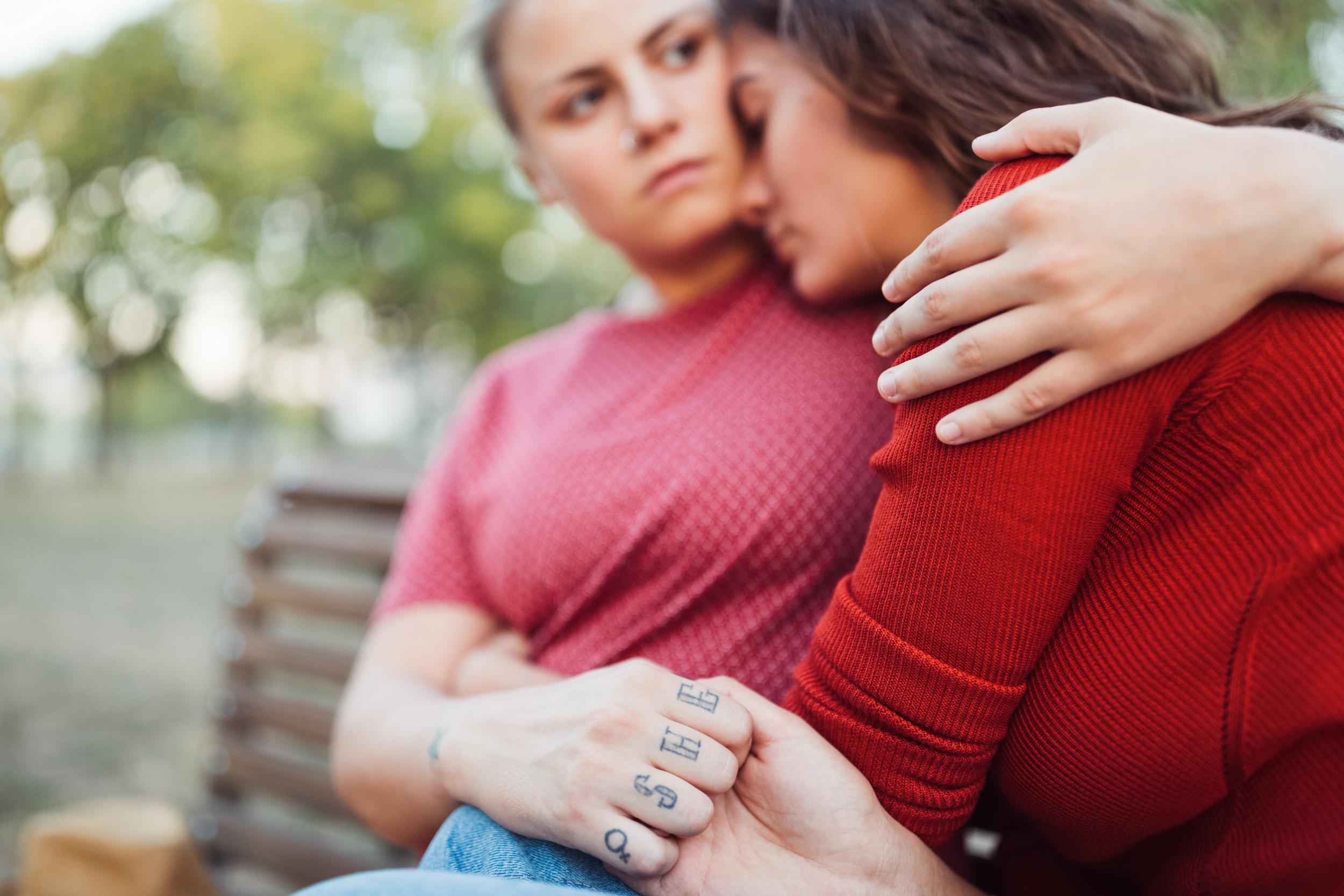Quarter of UK adults would not feel proud to have LGBT+ child, says new study
One in 10 people said they would feel uncomfortable living with their lesbian, gay, bisexual or transgender child

A quarter of adults in the UK would not feel proud to have an LGBT child, a new study reveals.
On online poll of 2,109 people by YouGov on behalf of the LGBT youth homelessness charity akt (formerly known as the Albert Kennedy Trust) asked people how they would feel in a range of scenarios if they had a child who came out to them as lesbian, gay, bisexual or transgender.
When respondents were asked whether they would “feel proud to have an LGBT child”, 26 per cent of those polled disagreed.
Less than half (46 per cent) of people surveyed agreed with the statement that they would feel proud to have a child who had come out.
The poll, which was undertaken in October, also found more than one in 10 (11 per cent) would feel uncomfortable living at home with their lesbian, gay, bisexual or transgender child.
Previous research undertaken by the charity found nearly a quarter (24 per cent) of homeless people aged between 16-25 identified as LGBT plus, with more than three quarters (77 per cent) claiming that abuse and familial rejection was the main factor in them becoming homeless.
On the subject of relationships and sex education, the new research indicates that a quarter of people (25 per cent) said that this should not include LGBT issues, while 59 per cent were supportive of including topics such as gender identity and sexuality at an age-appropriate level.
Almost a third of people (28 per cent) were not willing to change the pronouns used for their child (such as he, she and they) at their request if they came out as transgender.
Conversely, 46 per cent of people polled were willing to change their child’s pronouns, with 52 per cent of women and 39 per cent of men agreeing to do so.
However, one in five gay or lesbian participants (20 per cent) said they would not change the pronouns used for their child.
In contrast, 72 per cent of gay or lesbian people surveyed said they were willing to change pronouns, along with 79 per cent of bisexual people.
Younger people were more willing to change the pronouns, with 55 per cent of 25-34-year-olds willing to do so, compared with only 41 per cent of those aged 55 and older.
Tim Sigsworth, chief executive of akt, said: “These figures barely capture the heartbreaking realities we hear every day from the young people that akt is here to support.
”People often talk about the 'unconditional love' that parents have for their children, however we know first-hand that in many cases, the act of coming out can result in parental rejection and abuse for many young people.
“akt is here to support LGBTQ+ young people into safe homes and better futures, and work toward a world where no young person has to choose between having a roof over their head and being who they are.”
Laura Russell, director of campaigns, policy and research at the LGBT campaigning charity Stonewall told The Independent: "These statistics are a sad reminder that we’re still not living in a society where every LGBT person is free and safe to be themselves.
"As a result of discrimination and rejection from family and friends, lesbian, gay, bi and trans young people are more likely to become homeless.
"Now more than ever we need more people to come out for LGBT equality to help build a world where everyone can be accepted without exception."
Join our commenting forum
Join thought-provoking conversations, follow other Independent readers and see their replies
Comments
Bookmark popover
Removed from bookmarks